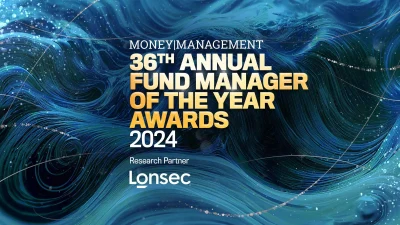Chasing the big goals


Their ability to find and exploit alpha is the main reason Coolabah Capital is able to outperform their peers, according to chief investment officer, Christopher Joye.
His philosophy was centred around the fact they’re an active investment manager that sought to exploit mispricing in credit markets.
“We are driving returns through alpha not through beta, which means capital gains not yield,” Joye said.
In addition to building his private sector businesses, he had taken pride in using his technical expertise in the public sphere.
“I’ve done a lot of work advising governments over the years on bond markets, I advised the government during the GFC on the residential mortgage backed securities market and they injected $15 billion into that market,” Joye said.
In 2019, the Australian government committed $2 billion to invest in securitised small-to-medium enterprise (SME) loans, based on a policy proposal he made to the Treasurer.
Not only had he worked on policy for the Australian government, he had also been invited by the Rockefeller and MacArthur Foundations to travel to the US in 2009 to advise the Obama Administration on the US housing crisis.
“I’ve made large contributions to the public policy domain, but at the same time establishing $3 billion fund manager run by 21 executives that has delivered consistent outperformance for its clients has left me pretty satisfied.”
From 2003-2007 he had served as director of the Menzies Research Centre, the Liberal Party associated public policy think tank.
His career started at Goldman Sachs in London and Sydney in mergers and acquisitions, and principal investments.
Before that, he had also worked for the Reserve Bank of Australia.
He set up his own quantitative funds business in the mid-2000s, before having sold it later to Macquarie Bank in 2010.
In 2011, he co-founded Coolabah Capital with Darren Harvey, where he was responsible for investment decisions, portfolio management, research and asset pricing, and general business management.
They had a team of nine analysts and four portfolio managers, most of whom came from technical research backgrounds.
“We run up to 30 quantitative bond valuation models, to re-price every bond globally we can buy and sell, then we look for the cheap securities that are likely to appreciate in value,” Joye said.
“We’re focused on holding low-risk businesses that are low-risk to default, but at the same time we have consistently identified mispricing in bond markets that has contributed capital gains, which has driven alpha on top of any beta in the market.”
Recommended for you
After a successful inaugural event last year, the Women in Finance Summit is returning in 2024 with more business insights and networking opportunities.
Over 90 finalists have been chosen to compete at the 36th annual Fund Manager of the Year Awards, to be held in Sydney on 13 June.
A director at the Financial Advice Association Australia and a former superannuation chief executive are among recipients of this year’s Australia Day honours.
The software provider has signed on as a partner of the 10th annual Super Fund of the Year Awards, taking place in Melbourne on 25 October.















